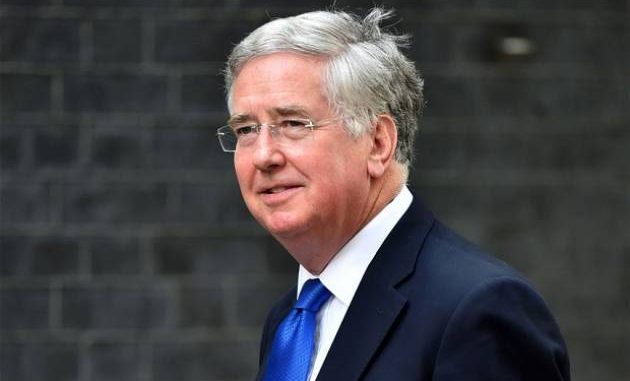
United Kingdom, in the post-Brexit era, is all gung-ho about its expanding strategic partnership with India. Defence secretary Michael Fallon, the fourth top UK minister to visit India after PM Theresa May came last November, tells Rajat Pandit that Britain wants to jointly produce futuristic weapon systems under the ‘Make in India’ framework
Q: What were the outcomes of the first India-UK strategic defence dialogue, which you co-chaired with finance-cum-defence minister Arun Jaitley on Thursday?
We are beginning this important defence and international security partnership, agreed back in November 2015 when PM Modi visited London. We agreed, minister Jaitley and I, to strengthen the already-underway partnership to also cover counter-terrorism, cyber security, aircraft carrier working up, air force training and maritime security (including exchanging information to track terrorist and pirate vessels), among others.
There is already increasing collaboration between Indian and British security agencies on counter-terrorism and intelligence-sharing. No country is immune, sadly, from terrorism. So, we have to increase intelligence-sharing and learn from each other’s counter-terror techniques.
We also agreed to extend our defence equipment cooperation to enable British and Indian companies to collaborate on new technologies so that we can export them from India together to third countries and new markets in the region.
Rolls-Royce is working with DRDO on new gas turbine engine technology. Discussions are also now on the Starstreak air defence missiles (short-range, man-portable surface-to-air missiles).
We also agreed to deepen our bilateral military ties, which will include exercises between our armies, navies and air forces this year.
Q: India has had a poor experience in terms of transfer of technology from other countries. A lot is promised but never delivered.
Last year, 99% of all export license applications to India were approved. We have a tough export control regime because we do not want the technologies to reach those who wish us harm. But that is not the case with India. We fully support technology transfer to India. The Hawk advanced jet trainer (India hjas contracted 123 Hawks in projects worth over Rs 16,000 crore) is an example.
The new advanced Hawk project of BAE Systems and Hindustan Aeronautics, with new avionics, cockpit, wings and training simulation, is a good example of matching British expertise and experience with Indian brainpower.
We can together develop existing platforms into capabilities that other countries would want to buy. If India is going to develop new-generation fighter jets, we are ready to lend our considerable expertise of our aerospace industry.
Q: But there have been a series of defence scandals in India over British-origin equipment, from AgustaWestland VVIP helicopters to Rolls-Royce. Is UK cooperating with India on the probes?
I cannot comment on current cases. But both the governments have a very strong interest in ensuring defence procurements are done properly. We have recently tightened our legislation against bribery. We also ensure the British Serious Frauds Office cooperates with other agencies around the world. We are making sure that big defence procurements are conducted properly and that is the view of the Indian government as well.
Q: What are your government’s views on India’s role in the volatile Af-Pak region? What about Pakistan, which has forces trying to create problems for both Afghanistan and India?
Source: Times of India

Leave a Reply